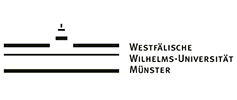The Urgenda Case in the Netherlands on Climate Change and the Problems of Multilevel Constitutionalism
DOI:
https://doi.org/10.31078/consrev622Keywords:
Climate Change, Constitutional Law, European Convention on Human Rights, International Law, The NetherlandsAbstract
This contribution analyses the Urgenda judgments in the Netherlands which ordered the state to reduce the national emissions of greenhouse gasses by 25% by the end of 2020. In arriving at this conclusion, the courts relied heavily on international law, which was applied indirectly and directly to the case. The analysis shows various incongruencies and gaps in the judgments’ legal grounds and reasoning, and suggests that a focus on the Constitution is needed as well in addressing such important issues. This will require long overdue reform of the bar on constitutional review in order to stimulate a strong national legal culture based on the Constitution.References
Bali Action Plan, Decision 1/CP.13, UN Doc. FCCC/CP/2007/6/Add.1, 14 March 2008.
Bergkamp, Lucas. “Het Haagse klimaatvonnis: Rechterlijke onbevoegdheid en de negatie van het causaliteitsvereiste [The Hague Climate Judgment: Judicial Incompetence and the Negation of Causality].” Nederlands Juristenblad, no. 33 (2015).
Besselink, Leonard. “De constitutioneel meer legitieme manier van toetsing: Urgenda voor het Hof Den Haag [Constitutionally more Legitimate Review.
Urgenda in The Hague District Court].” Nederlands Juristenblad, no. 41 (2018).
Besselink, Leonard. “Naschrift [Postscript].” Nederlands Juristenblad, no. 9 (2018).
Besselink, L.F.M. “Machtenscheiding in de Urgenda-zaak [Separation of Powers in Urgenda].” Tijdschrift voor Constitutioneel Recht 11, no. 2 (2020).
Burkens, M.C., H.R.B.M. Kummeling, B.P. Vermeulen and R.J.G.M. Widdershoven.
Beginselen van de democratische rechtsstaat [Democratic Rechtsstaat Principles]. Deventer: Kluwer, 2017.
Core Writing Team, Pachauri, R.K and Reisinger, A. (eds.). “Climate Change 2007: Synthesis Report. Contribution of Working Groups I, II and III to the Fourth Assessment Report of the Intergovernmental Panel on Climate Change.” (An Assessment Report of Intergovernmental Panel on Climate Change (IPCC) 2007).
Decision of Paris Agreement 1/CP.21, UN Doc. FCCC/CP/2015/10/Add.1, 29 January 2016 (Paris Agreement 2016).
De Graaf, K.J. and J.H. Jans. “The Urgenda Decision: Netherlands Liable for Role in Causing Dangerous Global Climate Change.” Journal of Environmental Law 27, no. 3 (2015).
Decision of Cancun Climate Conference, 1/CP.16, UN Doc. FCCC/CP/2010/7/ Add.1, 15 March 2011 (Cancun Climate Conference, 2011).
De Vos, Pierre and Warren Freedman. South African Constitutional Law in Context. Oxford: Oxford University Press, 2014.
Doha Amendment, Decision 1/CMP.8, UN Doc FCCC/KP/CMP/2012/13/Add.1, 28 February 2013.
Drift. ‘About Drift.’Drift for Transition. https://drift.eur.nl/about/.
Fuller, Lon L. “The Forms and Limits of Adjudication.” Harvard Law Review 92, no. 2 (1978).
Hirsch Ballin, Ernst M.H. De Grondwet in politiek en samenleving. Rechtsstaatlezing 2013 [The Constitution in Politics and Society: Rechtsstaat Lecture 2013]. The Hague: Boom Lemma, 2013.
Judgment 2015 of District Court of The Hague, 24 June 2015.
Judgement 2018 ofCourt of Appeal The Hague, 9 October 2018.
Judgement 2019 of Supreme Court, 20 December 2019.
Kyoto Protocol, Decision 1/CP.3, UN Doc FCCC/CP/1997/7/Add.1, 25 March 2008.
Landau, David. “Judicial Role and the Limits of Constitutional Convergence in Latin America.” In Comparative Constitutional Law in Latin America, edited by Rosalind Dixon and Tom Ginsburg. Cheltenham: Edward Elgar, 2017.
Leijten, Ingrid. “Human Rights v. Insufficient Climate Action: The Urgenda Case.” Netherlands Human Rights Quarterly 37, no. 2 (2019).
Leijten, Ingrid. “The Dutch Climate Case Judgment: Human Rights Potential and Constitutional Unease.” VerfassungsBlog, 19 October 2018.
Langford, Malcolm. “The Justiciability of Social Rights: From Practice to Theory.” In Social Rights Jurisprudence: Emerging Trends in International and Comparative Law, edited by Malcolm Langford. Cambridge: Cambridge University Press, 2008.
Loth, Marc. “Climate Change Liability After All: A Dutch Landmark Case.” Tilburg Law Review 21, no. 1 (2016).
Mangabeira Unger, Roberto. False Necessity: Anti-Necessitarian Social Theory in the Service of Radical Democracy. Cambridge: Cambridge University Press, 1987.
Nieuwenhuis, A.J., Den Heijer M. and Hins, A.W. Hoofdstukken grondrechten [Fundamental Rights Chapters]. Nijmegen: Ars Aequi Libri, 2017.
Rosanvallon, Pierre. Counter-democracy. Politics in an Age of Distrust. Cambridge: Cambridge University Press, 2008.
Schutgens, Roel. “Urgenda en de trias: Enkele staatsrechtelijke kanttekeningen bij het geruchtmakende klimaatvonnis van de Haagse rechter [Urgenda and the Trias: Some Constitutional Notes on a Much-discussed Climate Case].” Nederlands Juristenblad, no. 33 (2015).
Staatscommissie Parlementair Stelsel. Lage drempels, hoge dijken. Democratie en rechtsstaat in balans [Democracy and the Rule of Law in Equilibrium]. Amsterdam: Boom, 2018.
Suryapratim, Roy and Edwin Woerdman. “Situating Urgenda v the Netherlands within Comparative Climate Change Litigation.” Journal of Energy & Natural Resources Law 34, no. 2 (2016).
Tushnet, Mark. Advanced Introduction to Comparative Constitutional Law. Cheltenham: Edward Elgar, 2018.
United Nations Framework Convention on Climate Change (UNFCCC).
Van der Schyff, Gerhard. “Constitutional Review by the Judiciary in the Netherlands: A Bridge Too Far?” German Law Journal 11, no. 2 (2010).
Van der Schyff, Gerhard. “The Prohibition on Constitutional Review by the Judiciary in the Netherlands in Critical Perspective: The Case and Roadmap for Reform.” German Law Journal 21, no. 5 (2020).
Van Gestel, Rob and Loth, Marc. “Voorbij de trias politica: Over de constitutionele betekenis van ‘public interest litigation [Past the Trias Politica: Constitutional Meaning and Public Interest Litigation].” Ars Aequi 68 (2019).
Van Zeben, Josephine. “Establishing a Government Duty of Care for Climate Change Mitigation: Will Urgenda Turn the Tide?” Transnational Environmental Law 4, no. 2 (2015).
Verschuuren, Jonathan and Wener Scholtz. “Contribution of the Case Law of the European Court of Human Rights to Sustainable Development in Europe.” In Regional Environmental Law, edited by Jonathan Verschuuren and Werner Scholtz. Cheltenham: Edward Elgar, 2015.
Bergkamp, Lucas. “Het Haagse klimaatvonnis: Rechterlijke onbevoegdheid en de negatie van het causaliteitsvereiste [The Hague Climate Judgment: Judicial Incompetence and the Negation of Causality].” Nederlands Juristenblad, no. 33 (2015).
Besselink, Leonard. “De constitutioneel meer legitieme manier van toetsing: Urgenda voor het Hof Den Haag [Constitutionally more Legitimate Review.
Urgenda in The Hague District Court].” Nederlands Juristenblad, no. 41 (2018).
Besselink, Leonard. “Naschrift [Postscript].” Nederlands Juristenblad, no. 9 (2018).
Besselink, L.F.M. “Machtenscheiding in de Urgenda-zaak [Separation of Powers in Urgenda].” Tijdschrift voor Constitutioneel Recht 11, no. 2 (2020).
Burkens, M.C., H.R.B.M. Kummeling, B.P. Vermeulen and R.J.G.M. Widdershoven.
Beginselen van de democratische rechtsstaat [Democratic Rechtsstaat Principles]. Deventer: Kluwer, 2017.
Core Writing Team, Pachauri, R.K and Reisinger, A. (eds.). “Climate Change 2007: Synthesis Report. Contribution of Working Groups I, II and III to the Fourth Assessment Report of the Intergovernmental Panel on Climate Change.” (An Assessment Report of Intergovernmental Panel on Climate Change (IPCC) 2007).
Decision of Paris Agreement 1/CP.21, UN Doc. FCCC/CP/2015/10/Add.1, 29 January 2016 (Paris Agreement 2016).
De Graaf, K.J. and J.H. Jans. “The Urgenda Decision: Netherlands Liable for Role in Causing Dangerous Global Climate Change.” Journal of Environmental Law 27, no. 3 (2015).
Decision of Cancun Climate Conference, 1/CP.16, UN Doc. FCCC/CP/2010/7/ Add.1, 15 March 2011 (Cancun Climate Conference, 2011).
De Vos, Pierre and Warren Freedman. South African Constitutional Law in Context. Oxford: Oxford University Press, 2014.
Doha Amendment, Decision 1/CMP.8, UN Doc FCCC/KP/CMP/2012/13/Add.1, 28 February 2013.
Drift. ‘About Drift.’Drift for Transition. https://drift.eur.nl/about/.
Fuller, Lon L. “The Forms and Limits of Adjudication.” Harvard Law Review 92, no. 2 (1978).
Hirsch Ballin, Ernst M.H. De Grondwet in politiek en samenleving. Rechtsstaatlezing 2013 [The Constitution in Politics and Society: Rechtsstaat Lecture 2013]. The Hague: Boom Lemma, 2013.
Judgment 2015 of District Court of The Hague, 24 June 2015.
Judgement 2018 ofCourt of Appeal The Hague, 9 October 2018.
Judgement 2019 of Supreme Court, 20 December 2019.
Kyoto Protocol, Decision 1/CP.3, UN Doc FCCC/CP/1997/7/Add.1, 25 March 2008.
Landau, David. “Judicial Role and the Limits of Constitutional Convergence in Latin America.” In Comparative Constitutional Law in Latin America, edited by Rosalind Dixon and Tom Ginsburg. Cheltenham: Edward Elgar, 2017.
Leijten, Ingrid. “Human Rights v. Insufficient Climate Action: The Urgenda Case.” Netherlands Human Rights Quarterly 37, no. 2 (2019).
Leijten, Ingrid. “The Dutch Climate Case Judgment: Human Rights Potential and Constitutional Unease.” VerfassungsBlog, 19 October 2018.
Langford, Malcolm. “The Justiciability of Social Rights: From Practice to Theory.” In Social Rights Jurisprudence: Emerging Trends in International and Comparative Law, edited by Malcolm Langford. Cambridge: Cambridge University Press, 2008.
Loth, Marc. “Climate Change Liability After All: A Dutch Landmark Case.” Tilburg Law Review 21, no. 1 (2016).
Mangabeira Unger, Roberto. False Necessity: Anti-Necessitarian Social Theory in the Service of Radical Democracy. Cambridge: Cambridge University Press, 1987.
Nieuwenhuis, A.J., Den Heijer M. and Hins, A.W. Hoofdstukken grondrechten [Fundamental Rights Chapters]. Nijmegen: Ars Aequi Libri, 2017.
Rosanvallon, Pierre. Counter-democracy. Politics in an Age of Distrust. Cambridge: Cambridge University Press, 2008.
Schutgens, Roel. “Urgenda en de trias: Enkele staatsrechtelijke kanttekeningen bij het geruchtmakende klimaatvonnis van de Haagse rechter [Urgenda and the Trias: Some Constitutional Notes on a Much-discussed Climate Case].” Nederlands Juristenblad, no. 33 (2015).
Staatscommissie Parlementair Stelsel. Lage drempels, hoge dijken. Democratie en rechtsstaat in balans [Democracy and the Rule of Law in Equilibrium]. Amsterdam: Boom, 2018.
Suryapratim, Roy and Edwin Woerdman. “Situating Urgenda v the Netherlands within Comparative Climate Change Litigation.” Journal of Energy & Natural Resources Law 34, no. 2 (2016).
Tushnet, Mark. Advanced Introduction to Comparative Constitutional Law. Cheltenham: Edward Elgar, 2018.
United Nations Framework Convention on Climate Change (UNFCCC).
Van der Schyff, Gerhard. “Constitutional Review by the Judiciary in the Netherlands: A Bridge Too Far?” German Law Journal 11, no. 2 (2010).
Van der Schyff, Gerhard. “The Prohibition on Constitutional Review by the Judiciary in the Netherlands in Critical Perspective: The Case and Roadmap for Reform.” German Law Journal 21, no. 5 (2020).
Van Gestel, Rob and Loth, Marc. “Voorbij de trias politica: Over de constitutionele betekenis van ‘public interest litigation [Past the Trias Politica: Constitutional Meaning and Public Interest Litigation].” Ars Aequi 68 (2019).
Van Zeben, Josephine. “Establishing a Government Duty of Care for Climate Change Mitigation: Will Urgenda Turn the Tide?” Transnational Environmental Law 4, no. 2 (2015).
Verschuuren, Jonathan and Wener Scholtz. “Contribution of the Case Law of the European Court of Human Rights to Sustainable Development in Europe.” In Regional Environmental Law, edited by Jonathan Verschuuren and Werner Scholtz. Cheltenham: Edward Elgar, 2015.
Downloads
Published
2020-12-30
How to Cite
van der Schyff, G. (2020). The Urgenda Case in the Netherlands on Climate Change and the Problems of Multilevel Constitutionalism. Constitutional Review, 6(2), 210–240. https://doi.org/10.31078/consrev622
Issue
Section
Articles
































































